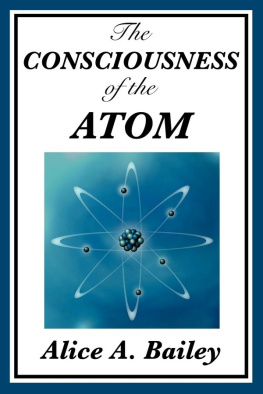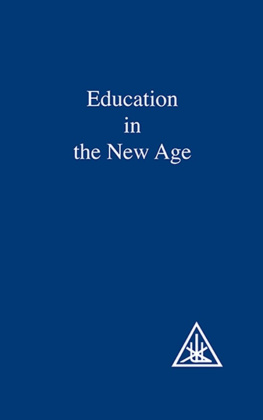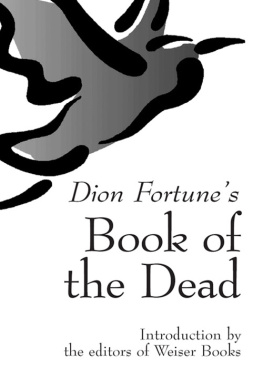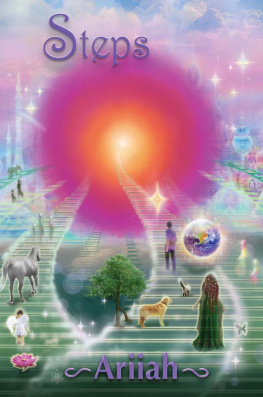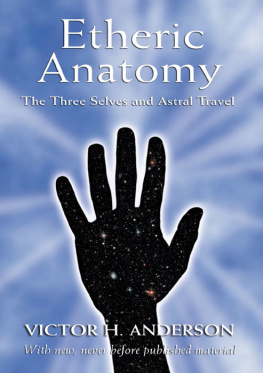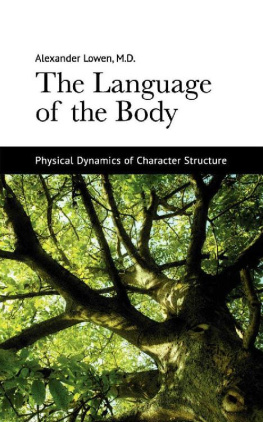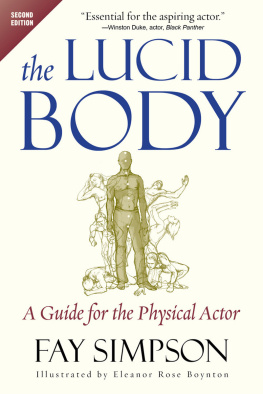THE SOUL AND ITS MECHANISM
The Problem of Psychology
by
ALICE A. BAILEY
Dedicated
with my grateful love to
ALICE E. DUPONT ORTIZ
Index Edition
Published by the Lucis Publishing Companies
The first and only publisher of the complete works
of Alice A. Bailey
www.lucistrust.org/books
COPYRIGHT 1930 BY LUCIS TRUST
COPYRIGHT RENEWED 1958 BY LUCIS TRUST
First Printing, 1930
Sixth Printing, 1973 (First Paperback Edition)
Thirteenth Printing, Hardcover 2015
Library of Congress Catalog Card Number: 31-995
E Book edition: First 2012, This 2016 ISBN No. 978-085330-415-9
All rights reserved. No part of this book may be reproduced or utilised in any form or by any means, electronic or mechanical, including photocopying, recording, or by any information storage and retrieval system, without permission in writing from the publisher.
The publication of this book is financed by the Tibetan Book Fund which is established for the perpetuation of the teachings of the Tibetan and Alice A. Bailey.
This Fund is controlled by the Lucis Trust, a tax-exempt, religious, educational corporation.
The Lucis Publishing Companies are non-profit organisation owned by the Lucis Trust. No royalties are paid on this book.
This book has been translated into Dutch, French, German, Greek, Italian, Portuguese, Russian and Spanish. Translation into other languages is proceeding.
LUCIS PUBLISHING COMPANY
866 United Nations Plaza, Suite 482, New York, NY 10017
LUCIS PRESS LIMITED
Suite 54, 3 Whitehall Court, London SW1A 2EF
BOOKS BY ALICE A. BAILEY
Initiation, Human and Solar
Letters on Occult Meditation
The Consciousness of the Atom
A Treatise on Cosmic Fire
The Light of the Soul
The Soul and its Mechanism
From Intellect to Intuition
A Treatise on White Magic
From Bethlehem to Calvary
Discipleship in the New AgeVol. I
Discipleship in the New AgeVol. II
Problems of Humanity
The Reappearance of the Christ
The Destiny of the Nations
Glamour: A World Problem
Telepathy and the Etheric Vehicle
The Unfinished Autobiography
Education in the New Age
The Externalisation of the Hierarchy
A Treatise on the Seven Rays:
Vol. IEsoteric Psychology
Vol. IIEsoteric Psychology
Vol. IIIEsoteric Astrology
Vol. IVEsoteric Healing
Vol. VThe Rays and the Initiations
Contents
THE GREAT INVOCATION
From the point of Light within the Mind of God
Let light stream forth into the minds of men.
Let Light descend on Earth
From the point of Love within the Heart of God
Let love stream forth into the hearts of men.
May Christ return to Earth.
From the centre where the Will of God is known
Let purpose guide the little wills of men
The purpose which the Masters know and serve.
From the centre which we call the race of men
Let the Plan of Love and Light work out.
And may it seal the door where evil dwells.
Let Light and Love and Power restore the Plan on Earth
The above Invocation or Prayer does not belong to any person or group but to all Humanity. The beauty and the strength of this Invocation lies in its simplicity, and in its expression of certain central truths which all men, innately and normally, acceptthe truth of the existence of a basic Intelligence to Whom we vaguely give the name of God; the truth that behind all outer seeming, the motivating power of the universe is Love; the truth that a great Individuality came to earth, called by Christians, the Christ, and embodied that love so that we could understand; the truth that both love and intelligence are effects of what is called the Will of God; and finally the self-evident truth that only through humanity itself can the Divine Plan work out.
Alice A Bailey
[viii]
It is easy to show that in the interaction between body and soul there lies no greater riddle than in any other example of causation, and that only the false conceit that we understand something of the one case, excites our astonishment that we understand nothing of the other.
Rudolph Hermann Lotze
The meaning which descends from the central hope of the self envelops the body; it becomes a city of meanings, and not merely a city of cells. Its organs are no mere facts, but symbols, perilous and profound. It becomes as a whole an object of value, of beauty or deformity, of grace and mechanism, of an implicit philosophy; and attitudes of pride and shame, the infinite interest of art, the versatile significance of the dance, all become intelligible. Posture, gesture, and a million subtle expressive changes of color and tension become the immediate indeliberate manifestations of an inner play. Poetry and morality, religion and logic, regain their seat in our members as well as in our minds, and the world recovers the concrete unity of which our analyses threatened to despoil us.
Self, Its Body and Freedom,
by Wm. E. Hocking, p. 97.
FOREWORD
[9] Our attitude toward the philosophical and psychological thought of the East is, for the most part, one either of undiscriminating awe or of equally undiscriminating distrust. It is a pity that this is so. The worshippers are as bad as the distrusters. Neither advance us toward a fair appraisal of that large body of Eastern thinking which is so curiously different from our own and yet, as one discovers after a while, is so fundamentally the same in its essential quest.
It is this undiscriminating attitude which is no doubt to blame for the well-nigh entire omission of Eastern thought from our philosophical and psychological booksthis, and another thing. The East has its own idioms which are difficult for the West to understand. Untranslated, they make Eastern writing seem a strange jargon either of confused poetizing or of self-mystification.
Mrs. Bailey, in this book, has done the great service of bringing a critical mind to bear upon Eastern thought, a mind ready to recognize that Eastern, precisely like Western thought, can lay no claim to a finality of wisdom. She does not come with awe-inspiring garb and gesture, bidding the Westerner relinquish his crude inadequacies to embrace a mysterious doctrine all the more wonderful because, to him, it may seem absurd. She says, in effect: This Eastern thought [10] has the significance of a research into the deeper problems of existence. It is not necessarily better than the Western. It is different. It starts from another angle of approach. Both East and West have specialized in their thinking. Each, therefore, has the virtue of its own sincerity and its own peculiar penetration. But specialization has its value only as it leads to an ultimate integration. Is not the time ripe for bringing East and West together in this profoundest region of the life of each of them, the region, namely, of their philosophical and psychological thinking?
If for no other reason, this book is significant as an attempt, not only to interpret East to West and West to East, but to bring the two trains of thinking into the harmony of a single point of view. Whether she has successfully achieved the integration remains for the reader to decide. But the attempt is a notable one and should bear fruit in a more intelligent approach to both types of thought.
What gives this book its especial significance, however, is the unique comparison which the author makes between the Western study of the glands and the Eastern study of the centers. The Western philosopher, Spinoza, long ago noted the indisseverable parallelism of what he called body and mind in the life of the Absolute and in the life of those expressions of the Absolute that we call individuals. If such a parallelism exists, one will expect to find, for every outer manifestation, the inner, or psychic force that thus manifests [11] itself. Hitherto we have taken that assumption of inner and outer only in the most general way. This book, by centering, in the main, on the study of the glands, that are the pace-makers, so to speak, of our personality, presents the body-mind relation not only in a way unexpectedly rich in suggestion for a more adequate training of the individual, but in a way that opens up fascinating possibilities of further research. In the West, we speak of the thyroid or the adrenals altogether in terms of their physiological behaviour. Is there likewise a psychic counterpart of this behaviour? It seems a queer question to ask and one that at first blush would be scoffed at by the physiological scientists. And yet, unless we are hardened dogmatists who have not yet emerged from the darkness of nineteenth century materialism, we do speak of the psychic counterpart of that physiological organ we call the brain. Why not, then, the psychic counterparts of the thyroid, adrenals, and the rest?


